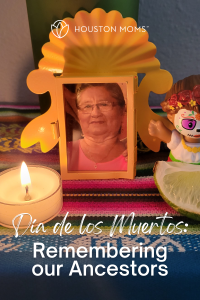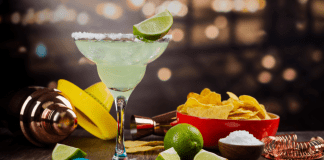It’s been almost ten years since my feet have touched the soil of my motherland, Ecuador, and I don’t know how I’ve let so much time pass. The last time I was there, I was single and a first-year teacher. Now, I am a wife, a mother, a seasoned educator, and a writer. As much as I’ve changed, I also know much has changed there too, our family growing in some ways and shrinking in others. We’ve lost several family and friends over that decade, so much so that I knew if we didn’t talk about them in the years to come, they would slowly but surely fade away.
New Traditions
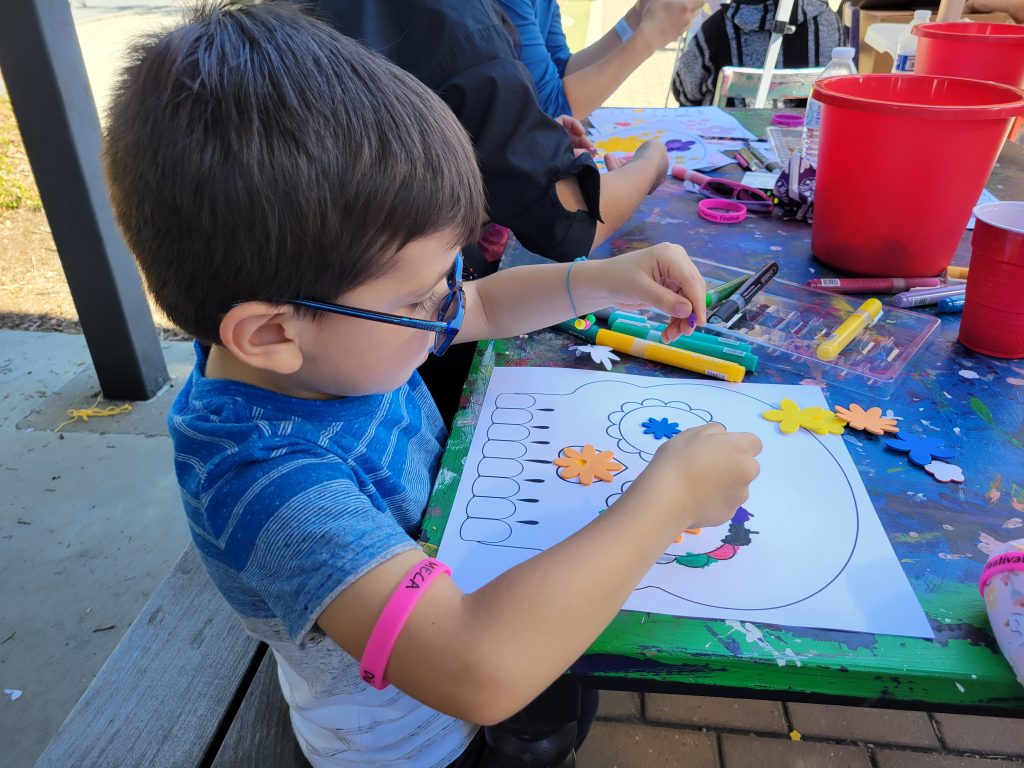 Last year, we as a family made it a point to start celebrating el Día de los Muertos, or as it’s known in Ecuador, Día de los Difuntos, observed on the first and second days of each November. My husband, having Mexican heritage but also being second-generation, never really celebrated it growing up, and I, coming from very conservative Christian backgrounds, was also discouraged from taking part in “an evil celebration of all things death.” We however decided to create a new narrative around this day within our family of 3. At that time, I wrote this reflection on an Instagram post about setting up el altar: “As my toddler son noticed me setting everything up, he came and asked what it all was. I showed him picture by picture, all his ancestors and named them one by one. His eyes were filled with amazement, as if he was beholding something magical. Indeed, the ofrenda is a holy space comprised of both grief and promise: grief for the loss of loved ones and promise for the many ways they stay alive in our storytelling.”
Last year, we as a family made it a point to start celebrating el Día de los Muertos, or as it’s known in Ecuador, Día de los Difuntos, observed on the first and second days of each November. My husband, having Mexican heritage but also being second-generation, never really celebrated it growing up, and I, coming from very conservative Christian backgrounds, was also discouraged from taking part in “an evil celebration of all things death.” We however decided to create a new narrative around this day within our family of 3. At that time, I wrote this reflection on an Instagram post about setting up el altar: “As my toddler son noticed me setting everything up, he came and asked what it all was. I showed him picture by picture, all his ancestors and named them one by one. His eyes were filled with amazement, as if he was beholding something magical. Indeed, the ofrenda is a holy space comprised of both grief and promise: grief for the loss of loved ones and promise for the many ways they stay alive in our storytelling.”
Remembering and Honoring Lost Loved Ones
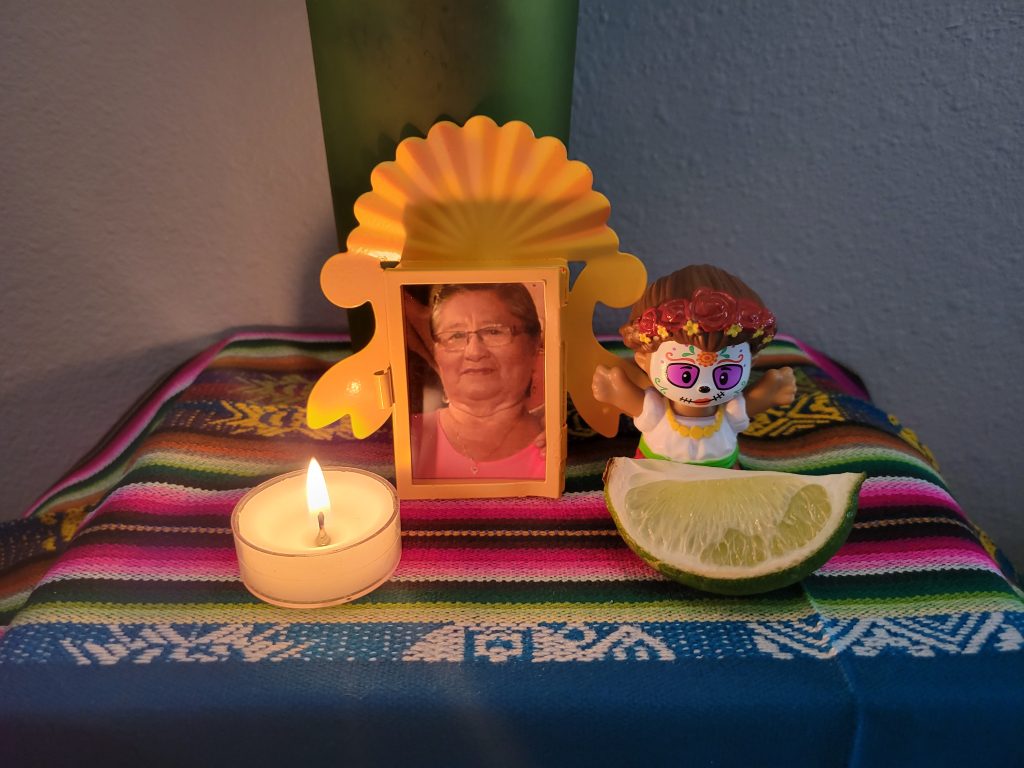 This year is especially holy and sacred to me. Our family suffered a great loss last month: our beautiful and beloved tía Flor. Hers was a radiance unlike any other, and there has never been a woman as loved by others as she was. She loved hard with her whole heart, and shared everything she had with anyone in need, which was never really much at all. You always think you will have more time with your people, until you don’t. I certainly did. I can’t even bring myself to think of tía Flor as an ancestor, because doing so would mean accepting she’s no longer among the living. My son will never get to have his tiny hand in hers, never get to know the warmth of her fierce yet tender body, never get to know the absolute soul satisfaction of her famous homemade limonada on a hot Guayaquil afternoon. We now have to speak of her in past tense, and I can’t yet bring my tongue to form the words.
This year is especially holy and sacred to me. Our family suffered a great loss last month: our beautiful and beloved tía Flor. Hers was a radiance unlike any other, and there has never been a woman as loved by others as she was. She loved hard with her whole heart, and shared everything she had with anyone in need, which was never really much at all. You always think you will have more time with your people, until you don’t. I certainly did. I can’t even bring myself to think of tía Flor as an ancestor, because doing so would mean accepting she’s no longer among the living. My son will never get to have his tiny hand in hers, never get to know the warmth of her fierce yet tender body, never get to know the absolute soul satisfaction of her famous homemade limonada on a hot Guayaquil afternoon. We now have to speak of her in past tense, and I can’t yet bring my tongue to form the words.
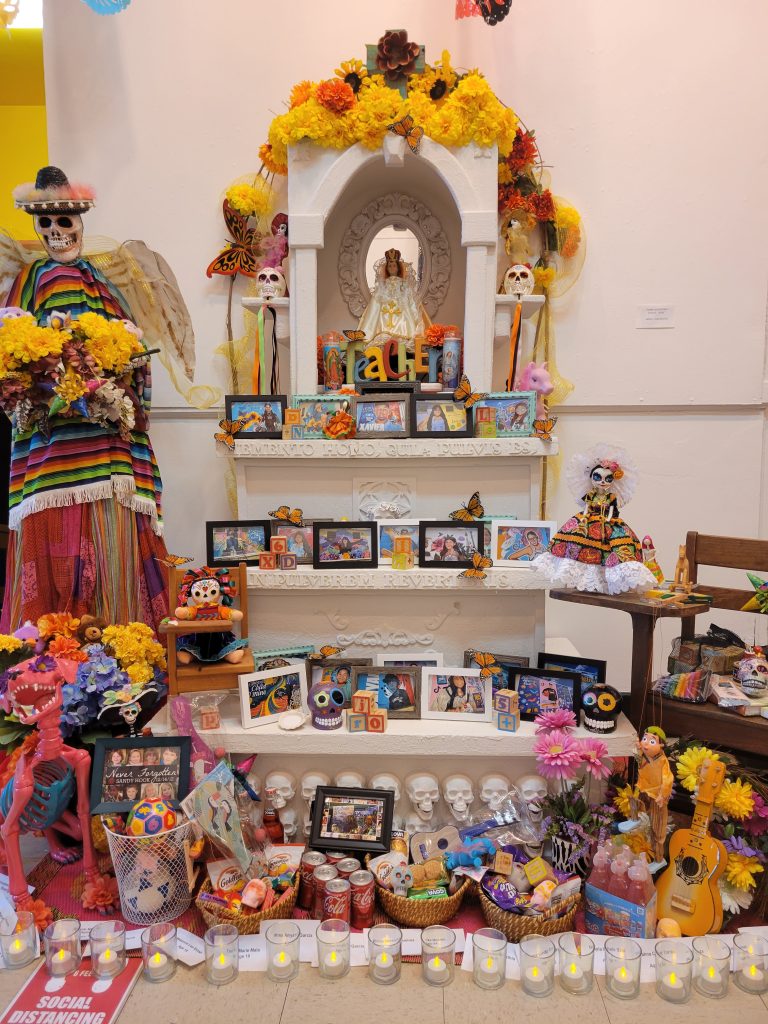 So, we will light candles instead. We will place a little tomato pin cushion and some limones next to her picture, a few reminders of the things she loved and the things we loved about her. We will keep her alive in our hearts and memories, while eating our guaguas de pan and drinking our colada morada. And my son will know her and will come to love her through our storytelling. This is indeed the power and magic of el Día de los Difuntos.
So, we will light candles instead. We will place a little tomato pin cushion and some limones next to her picture, a few reminders of the things she loved and the things we loved about her. We will keep her alive in our hearts and memories, while eating our guaguas de pan and drinking our colada morada. And my son will know her and will come to love her through our storytelling. This is indeed the power and magic of el Día de los Difuntos.
All pictures with the exception of the one of tía Flor were taken at the 2022 MECA Houston’s Dia de Muertos Festival.








